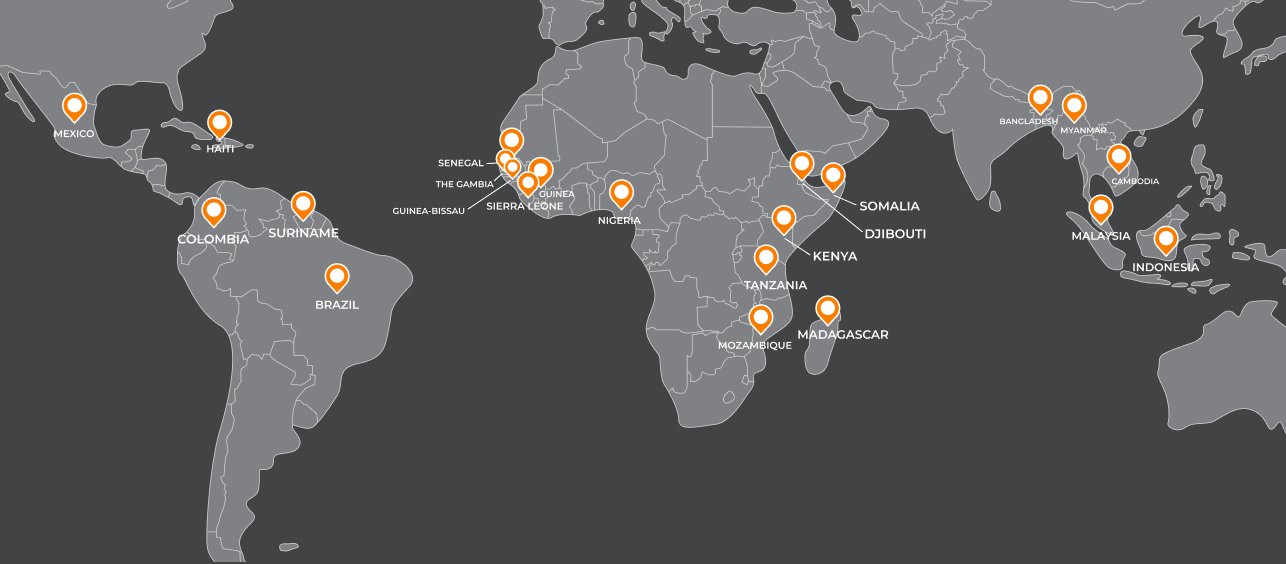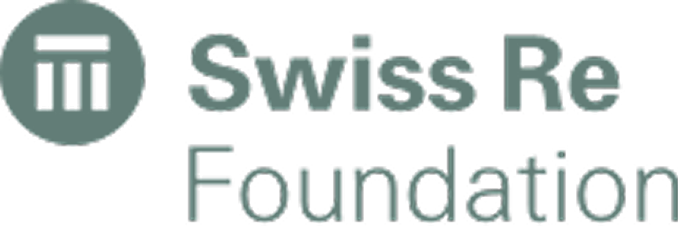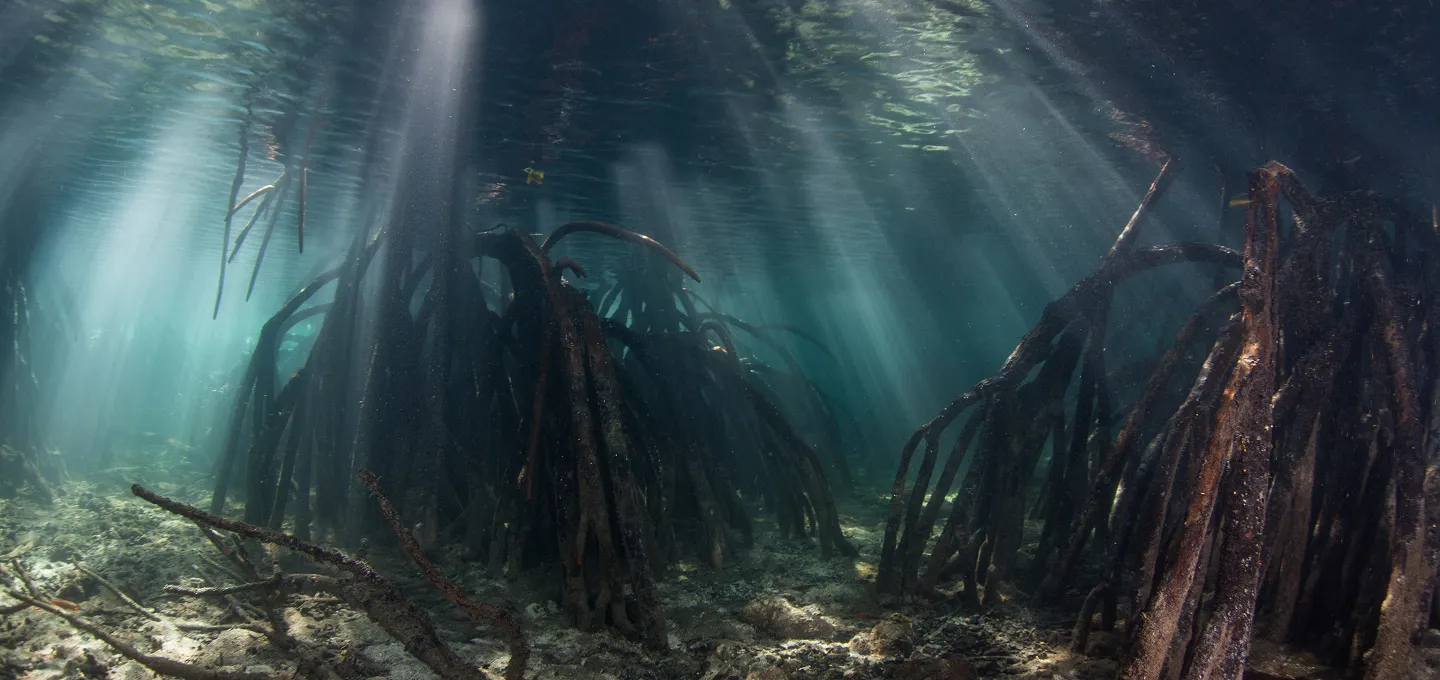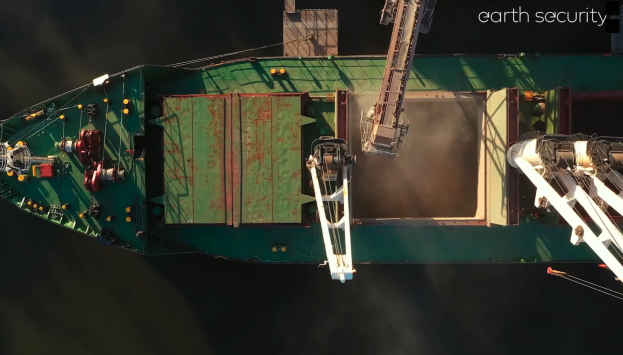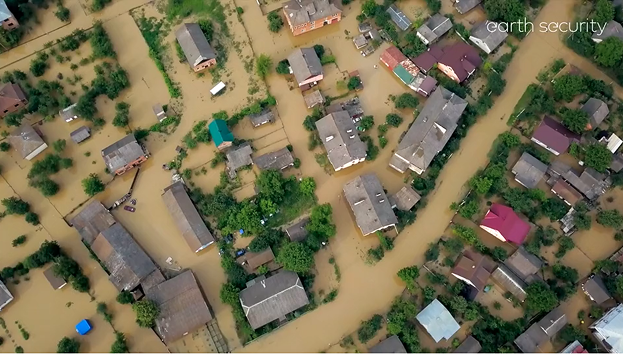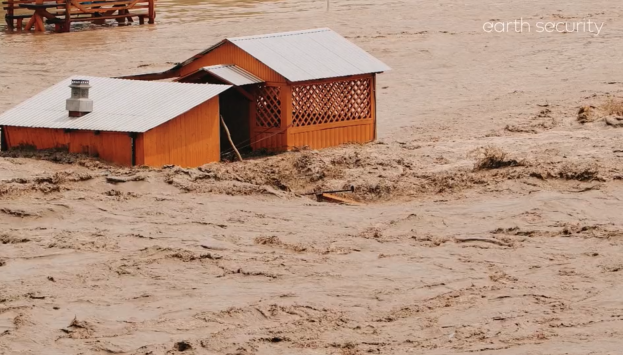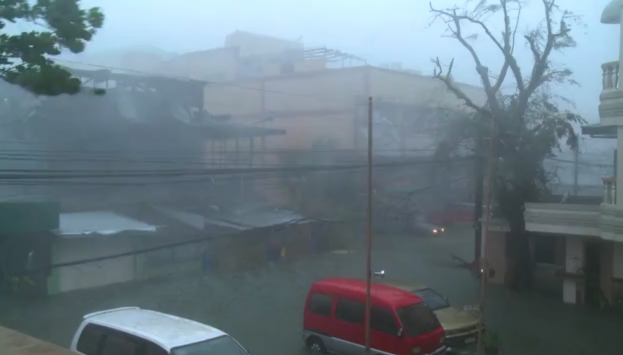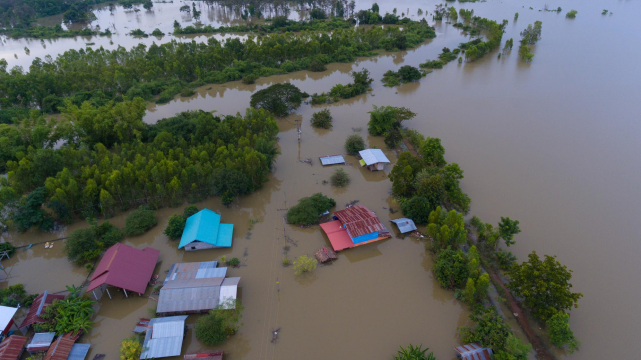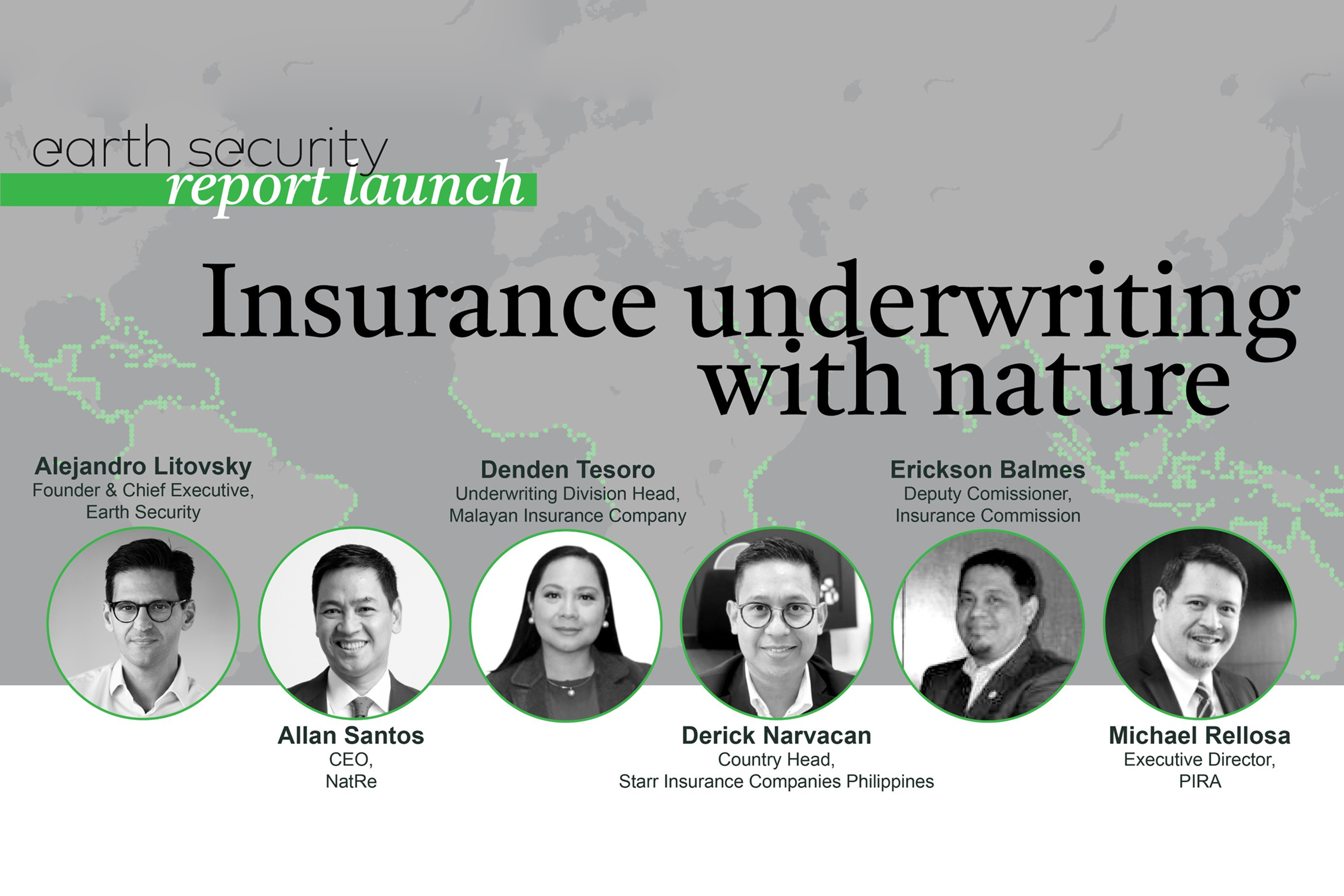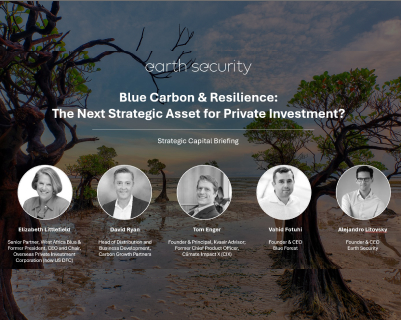
The project
Location:
Global
Rice is the main staple food for more than half of the world’s population, feeding 3.5 billion people. Despite its critical role, rice both significantly contributes to global methane emissions and is highly vulnerable to climate change. Ignoring these issues could lead to the collapse of communities and loss of livelihoods as well as critical challenges to global value chains.
In 2019, Earth Security published a blueprint for financial innovation, including establishing a funding platform to finance sustainable rice value chains. Earth Security partnered with the Sustainable Rice Platform (SRP) and Sustainable Rice Landscapes Initiative (SRLI) in order to translate its data and analysis into action. The Earth Security report provided investors, global companies and experts with a common blueprint, laying a foundation to raise over $500 million to deliver smart and sustainable solutions for rice farmers and supply chains.
“Earth Security was instrumental in preparing us to engage with the financial community, whose continuing commitment will be essential to delivering sustained, transformative change in the sector.”
– Wyn Ellis, Executive Director, Sustainable Rice Platform
The value of sustainable rice agriculture
Rice is vital for food security, feeding over half the world’s population and providing livelihoods for around 150 million smallholder farmers worldwide, many of whom cultivate small plots of less than one hectare. However, rice is both a driver and victim of climate change. Only a small portion of what’s grown – between 8–11% – is traded globally. If a major exporter is taken out of the market due to extreme weather, there are limited suppliers elsewhere to fill the gap.
Already, extreme weather – rising temperatures, frequent droughts, floods, and intense typhoons – is devastating rice farms and farmer livelihoods. Traditional rice cultivation methods, such as flooding paddy fields and burning rice straw, contribute approximately 10% of man-made methane emissions globally and use 40% of global irrigation water.
Reducing emissions from rice production is crucial, as highlighted by a third of countries in their Nationally Determined Contributions (NDCs) to the United Nations Framework Convention on Climate Change (UNFCCC). Southeast Asia and West Africa are particularly at risk from climate change, water scarcity, and food insecurity, making the transition to sustainable rice production essential to their resilience. However, global sustainable finance has historically overlooked rice in favour of higher-profile commodities like cocoa and palm oil.
"A Global Rice Fund as envisaged will mark a step change in driving the transition towards sustainable production for both domestic and export markets, by disbursing technical assistance grants, concessional finance or through other innovative mechanisms. Such a fund will be a testament to the foundational contribution of Earth Security in addressing financing gaps faced by rice smallholders."
– Wyn Ellis, Executive Director, Sustainable Rice Platform
Proposed solutions
In 2019, we published the report, “Financing Sustainable Rice for a Secure Future”, building the business case for sustainable rice and proposing three innovative finance solutions to support sustainable rice production in line with countries’ Paris Agreement climate targets based on financing collaborations:
- Issuing corporate ‘rice bonds’ to finance sustainable rice value chains and attract private sector investment for climate-smart agriculture, ideally suited for companies that have long-term offtake agreements with farmers.
- Creating a digital finance platform to scale financing to smallholder farmers, enhancing access to bundled financial services and market linkages and overcoming the main challenge of the absence of collateral by farmers.
- Leveraging international climate finance to attract private sector investment for climate-smart rice production, leveraging blended finance opportunities with development funders and multilateral climate funds to catalyse private sector action
In working through these proposals we engaged and actively collaborated with key stakeholders, including: Mastercard, Olam, Mars, Rabobank, Phoenix, The UN Capital Development Fund (UNCFD), the Sustainable Rice Platform (SRP), the World Business Council for Sustainable Development (WBCSD), the Swiss Agency for Development and Cooperation (SDC), UN Environment, UN Food and Agriculture Organisation (FAO), International Rice Research Institute (IRRI), the Sustainable Rice Landscapes Initiative (SRLI), and the Global Environment Facility (GEF).
Moving from insights to innovation
Building on this work and one of the recommendations, the SRLI submitted a proposal to the Global Environment Facility (GEF) for a sustainable rice financing facility under the GEF Challenge Program for Adaptation Innovation, and was awarded a project via grant via FAO to implement a two-year project to structure sustainable rice financing facilities in Bangladesh, Cambodia, and Vietnam. Ultimately, this project aims to pave the way for a global rice fund exceeding $500 million.
With a significant portion of the world’s rice production regions, particularly in Southeast Asia, being heavily reliant on irrigation, innovative practices such as Alternate Wetting and Drying (AWD) Direct Seeded Rice (DSR) and laser land levelling, offer important tools for improving water use efficiency and reducing emissions.
“The GEF Challenge Program grant will enable the Sustainable Rice Landscapes Initiative to launch a new blended finance facility to catalyse public and private sector investment to scale-up adaptation and resilience-building in rice landscapes.”
– Diane Holdorf, Executive Vice President, WBCSD
Special credit goes to Clarmondial AG’s Tanja Havemann and Versant Vision’s Christine Negra for working alongside SRP and other stakeholders to further the research outlined in this inaugural report in subsequent publication ‘Scaling private sector investment in sustainable rice: Needs and opportunities’, deepening the analysis of financing gaps with smallholder farmers, and developing the concept for the rice blended finance fund that is now under development.
This blueprint for the GEF-funded project, provisionally titled “Public-Private Blended Finance Facility for Climate-Resilient Rice Landscapes”, is a project that will be implemented by SRP and FAO initially in Bangladesh, Cambodia, and Vietnam. Key players in their development also include Beau Damen, Angela Joehl Cadena at FAO, as well as Victoria Crawford and Tony Siantonas at WBCSD providing leadership and guidance throughout the project.
About Earth Security
For over a decade, Earth Security has developed groundbreaking analyses that enable investors, philanthropists, and corporates to invest in the world’s natural assets and drive innovation to repair and protect our world. Our mission is to translate data and analytics into action, and catalyse innovative finance at scale.
Contact us
To discover more about this initiative and its global replication or hear more about partnering with Earth Security, please get in touch with us today.
Explore the reports
The Earth Security Index Reports provided in-depth analysis of critical themes across selected industries and market geographies, enabling investors to anticipate and respond to emerging global dynamics. Download and explore the full Earth Security Index reports:






